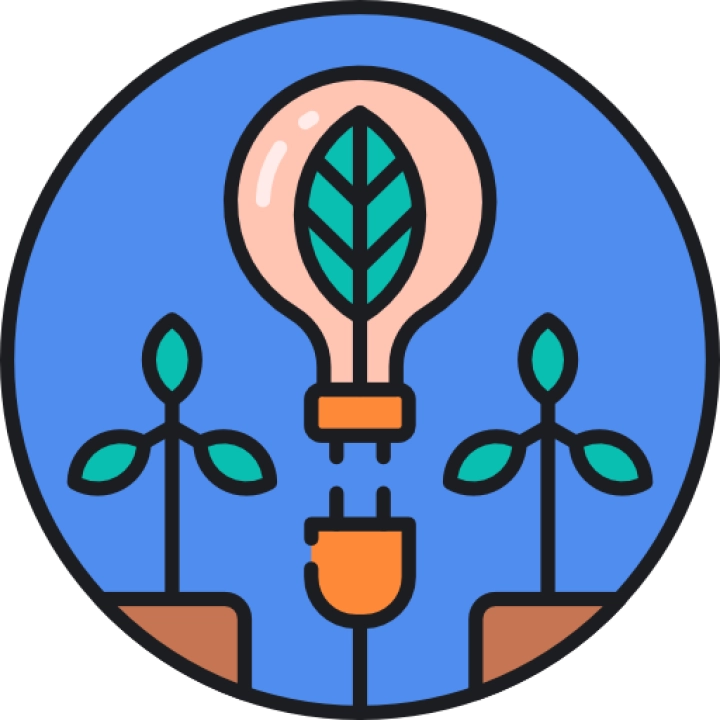College: Graduate School of Natural and Applied Sciences
This major focuses on creating sustainable solutions for food production, distribution, and consumption. Students develop skills in sustainable agriculture, food processing, supply chain management, and innovative food technologies. Graduates are prepared for careers in agriculture, the food industry, sustainability consulting, and related fields.
Learning Objectives:
- Understand the fundamentals of sustainable food systems, including agriculture, processing, and distribution.
- Develop skills in designing and implementing sustainable food production methods.
- Learn innovative food processing and packaging techniques.
- Explore principles of supply chain management and logistics in the food industry.
- Analyze and interpret sustainability metrics and policies in food systems.
- Develop critical thinking, problem-solving, and innovation skills for effective sustainable food system practices.
Main Curriculum:
- Introduction to Sustainable Food Systems
- Overview of concepts, principles, and key practices in sustainable food systems.
- Fundamentals of sustainable agriculture, and food processing and distribution.
- Sustainable Agriculture
- Principles of sustainable agriculture, including organic farming, ecological agriculture, and regenerative practices.
- Techniques for designing and implementing sustainable agricultural methods.
- Innovative Food Processing and Packaging
- Fundamentals of innovative food processing and packaging techniques.
- Techniques for developing and implementing sustainable food processing and packaging solutions.
- Supply Chain Management in Food Systems
- Principles of supply chain management, logistics, and distribution in the food industry.
- Techniques for enhancing food supply chains and reducing waste.
- Food Safety and Quality Assurance
- Principles of food safety, quality assurance, and regulatory compliance.
- Techniques for ensuring food safety and quality along the supply chain.
- Food Policy and Regulation
- Fundamentals of food policy, regulation, and sustainability standards.
- Techniques for developing and implementing food policies and systems.
- Research Methods in Sustainable Food Systems
- Principles of research methods, data analysis, and project management in sustainable food systems.
- Techniques for conducting and presenting research in sustainable agriculture and food processing.
- Practical Training in Sustainable Food Systems
- Real-world experiences in sustainable food systems, including observations, internships, and hands-on projects in agricultural settings, food processing plants, or sustainability consulting firms.
- Application of acquired skills in practical sustainable food system scenarios.
- Capstone Project in Sustainable Food Systems
- A comprehensive project to apply skills in sustainable agriculture, food processing, or supply chain management.
- Presentation of a polished sustainable food system project, innovation plan, or policy analysis.
Assessment Methods:
- Projects in sustainable agriculture, innovative food processing designs, supply chain management plans, food safety reports, policy analyses, research methodology projects, internship reports, capstone projects, group projects, and internship evaluations.
Recommended Textbooks:
- "Sustainable Agriculture" by various authors.
- "Innovative Food Processing and Packaging" by various authors.
- "Supply Chain Management in the Food Industry" by various authors.
- "Food Safety and Quality Assurance" by various authors.
- "Food Policy and Regulation" by various authors.
- "Research Methods in Sustainable Food Systems" by various authors.
Prerequisites:
Basic knowledge in agriculture, food science, and supply chain management. Suitable for students interested in sustainable food systems, agriculture, and food processing.
Duration of the Program:
The duration for a bachelor's degree is typically 4 years, including coursework, projects, practical training, and internships.
Certification:
Graduates can earn a degree in Sustainable Food Systems Design and Innovation, pursue higher education, or obtain professional certifications in related fields, such as a Master’s in Agriculture, Food Science, or Sustainability.
Target Audience:
Aspiring farmers, food scientists, supply chain managers, sustainability consultants, and individuals seeking careers in sustainable food production, processing, distribution, and related fields. This major equips students with design, innovation, and management skills essential for excelling in sustainable food systems and supporting careers in agriculture, the food industry, sustainability consulting, and related fields.

